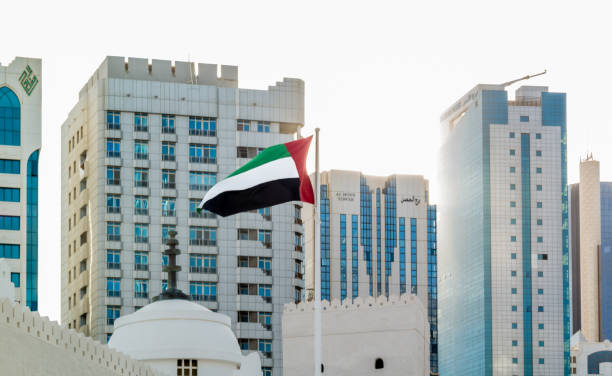
Extradition laws in the UAE [2026]
Extradition cases in the United Arab Emirates require a deep understanding of bilateral extradition agreements, judicial practice, and the political context. The UAE actively cooperates with dozens of countries and has concluded various extradition agreements, which help to bring criminals to justice for crimes committed abroad. If you are under the threat of extradition, do not waste time.
Our legal team specializes in extradition cases in the Emirates. We assess the validity of the request, protect the client’s rights at all stages of the procedure, prepare substantiated objections, and interact with local authorities and international organizations.

Requirements for an extradition request
The United Arab Emirates actively supports international legal cooperation by helping law enforcement agencies globally apprehend and prosecute suspects in criminal matters. The country’s extradition laws create a robust legal framework that facilitates international cooperation in combating serious crimes that warrant global attention. However, the UAE adheres to strict rules when processing extradition requests from foreign judicial authorities.
For a foreign request to be officially accepted and reviewed by UAE authorities, it must meet a number of formal and substantive requirements. The set of supporting documents accompanying the official extradition request must include the following elements:
- Full details about the wanted person. Indicate full name, date and place of birth, citizenship, last known place of residence, as well as any additional information that will help accurately identify the person (passport number, description of appearance, photographs);
- A certified copy of the arrest warrant or sentence from the competent judicial authority. A valid arrest warrant issued by the competent judicial authority or a copy of an enforceable sentence is required. The document must be legalized and accompanied by notarial certifications (or an apostille, if applicable).
- A detailed description of the factual circumstances of the case. Representatives of the UAE demand a detailed statement of the essence of the accusations, a description of the criminal actions, the date, the place of the alleged crime, and any other facts that allow understanding the nature of the accusation. A simple reference to a law article is not sufficient—the description must be evidential and contain facts, not just legal formulations.
- The text of the applicable articles of criminal legislation. It is mandatory to translate into Arabic the provisions of the law under which the person is accused, indicating the sanctions provided for violations. This is necessary to verify dual criminality.
- Assurance of compliance with the principle of reciprocity. In cases where there is no valid extradition treaty between the states, UAE authorities may request an official assurance of readiness for reciprocal extradition in similar cases. This confirms that extradition is based on mutual legal goodwill.
Step-by-step procedure of extradition in UAE courts
In the UAE, extradition proceedings are governed by several domestic and international legal instruments. The foundation is based on Federal Law No. 39 of 2006 on International Judicial Cooperation in Criminal Matters, as well as Federal Law No. 11 of 1973 on Judicial Authorities, and the provisions of the UAE Criminal Procedure Code.
The provisions of international treaties concluded by the UAE with other countries are applied, and in their absence, the principle of reciprocity is used. The extradition procedure in the UAE also follows strictly formalized stages and involves the participation of both judicial and executive authorities.

Step 1: Detention based on a request
An extradition request is submitted through diplomatic channels, the prosecutor’s office, or the Ministry of Foreign Affairs. If sufficient data and preliminary evidence of the transnational crime are available, the UAE General Prosecutor’s Office may initiate the detention of a person sought by a foreign state. The basis for this is either an Interpol Red Notice or a properly legalized arrest warrant.
The detention is carried out by the local police in the respective emirate. After detention, the person is taken to a pre-trial detention center, where they are informed of the reason for the detention and their right to a defense. At this stage, the foreign state must promptly submit a complete package of documents confirming the legitimacy of the request. Otherwise, the detainee is subject to release.
Step 2: Hearing in the competent Court of Appeal
After the case is transferred by the prosecutor’s office, the question of the admissibility of extradition is considered by the Appellate Court of the respective emirate. This is a key stage where the court analyzes the legality of the request, the presence of double criminality, compliance with procedural requirements, absence of political motivation, and adherence to human rights.
Meetings are held in an open or closed format. The court hears the position of the General Prosecutor’s Office, the representative of the foreign state, and the lawyers of detainee. Possible risks are also assessed: the threat of torture, violation of the right to a fair trial, the death penalty, or cruel treatment in the requesting country. The court’s decision may either favor extradition or result in a refusal.
Step 3: Decision-making and the right to appeal
After reviewing the case, the Appellate Court issues a ruling clearly stating the grounds for approving or rejecting the extradition request. In the event of a refusal of extradition, the person is immediately released.
However, if the court approves the extradition, the detainee retains the right to appeal in the Court of Cassation. The lawyer can file a cassation appeal within the established timeframe. Until the proceedings are completed, the individual remains in custody. Additionally, at this stage, lawyers can further submit motions, provide international rulings or other documents proving the illegality of the extradition.
Step 4: Case review in the Cassation Court
The Cassation Court is the highest judicial authority for criminal cases in the emirate. It does not review the factual circumstances of the case but verifies the legal correctness and procedural legality of the issued ruling. Sessions are held in written form, although oral hearings are also possible.
The judges of the Cassation Court analyze whether the rights of the detainee were respected, whether the norms of the applicable law were correctly interpreted, and whether there was any abuse of the extradition procedure. Based on the results of the review, the Cassation Court either upholds the decision of the Appellate Court or overturns it and sends the case for reconsideration.
Step 5: Final Decision of the Minister of Justice
Even if the court has approved extradition, the final decision is made by the Minister of Justice of the UAE. He has the authority to either approve the extradition or refuse it—regardless of the court’s position, if it is necessary to protect state interests, international obligations, or human rights.
The minister takes into account diplomatic relations, humanitarian circumstances, the risk of political repression, and compliance with international law. Only after signing the corresponding order does the extradition procedure begin: coordination with the foreign state, preparation for transfer, transportation under guard, and completion of the procedure.
Grounds for refusal of extradition
Let us consider the key reasons why the UAE may reject an extradition request:
- The political nature of the crime. Extradition is not permitted for political offences. This protects against abuses when states attempt to disguise political persecution as criminal proceedings.
- Discrimination. If the extradition request aims to punish a person based on race, nationality, religion, citizenship, gender, political views, or social group, this is an unconditional ground for refusal.
- Citizenship. The UAE extradition law prohibits the extradition of its own citizens to foreign judicial authorities. However, in several cases, the authorities may decide to initiate a criminal case and prosecute the individual under the relevant articles within the country.
- The crime falls under the jurisdiction of the UAE. If the act for which extradition is requested was committed on the territory of the UAE or has consequences affecting the interests of the state, extradition may be denied. In this case, the person may be held accountable within the framework of the UAE law.
- Ne bis in idem. This principle excludes the possibility of repeated prosecution for the same offence. If a person has already been acquitted, convicted, or served a sentence in the UAE for the same crime specified in the request, extradition will be impossible.
- Statute of limitations. If the statute of limitations for the alleged crime has expired according to the applicable legal framework, the extradition request is subject to rejection. The court analyzes not only the formal time limits but also the reasons for their possible interruption or suspension.
- Risk of torture. If there are reasonable suspicions that a person will be subjected to cruel, inhumane treatment and torture, the UAE authorities can refuse extradition.
- Health condition. If the requested person has serious medical contraindications, disability, or old age, in which extradition may pose a threat to life and health, the UAE may reject the request.
- The status of a political refugee. If a person has an official refugee status granted by another state or UNHCR, extradition may be considered a violation of the principle of non-refoulement — the prohibition of return to a country where the person faces persecution.
When there’s no extradition agreement between both the requesting country and the United Arab Emirates, UAE extradition law applies, and surrender requests must meet all legal requirements.
Extradition in the absence of a treaty: How does the principle of reciprocity work?
The principle of reciprocity means that a state may agree to the extradition of a foreign citizen if the requesting party officially assures that in a similar situation it will fulfill the same request from the UAE. Thus, both parties undertake to respect and fulfill mutual obligations, even in the absence of a formalized agreement.
This principle is recognized by Federal Law No. 39 of 2006 on the provision of international legal assistance in criminal cases. It allows for the possibility of transferring a person under a number of conditions, if the requesting state provides official diplomatic assurances, confirmation of compliance with all international standards, and guarantees of respect for the rights and freedoms of the person.
Assurances are sent through diplomatic channels via the embassy or the foreign affairs agency. They must contain an obligation to extradite a similar person upon request by the UAE, confirmation of compliance with international standards in the treatment of the extradited individual, a guarantee of a fair trial, and, if necessary, an obligation not to apply the death penalty or torture.
Do you need consultation on extradition cases in the UAE?
Extradition in the UAE is characterized by high legal complexity and requires a deep understanding of local legislation. Mistakes at early stages can lead to undesirable extradition or prolonged restrictions on freedom. Our lawyers have years of experience defending clients caught in the center of the extradition process in the UAE, whether at the stage of detention, court proceedings, or appeals. We carefully analyze the request based on applicable bilateral and multilateral agreements, identify possible violations, and develop a defense strategy taking into account international norms.
If extradition is initiated without the presence of a treaty, we will verify the legitimacy of applying the principle of reciprocity. If necessary, we will file motions to dismiss the case or initiate appeals to international human rights organizations. We also handle cases at all levels: from the Appellate Court to the Cassation Court and up to the final decision of the Minister of Justice. Contact us right now to secure qualified legal support and protect your rights. A consultation could be a decisive step toward a positive outcome.





